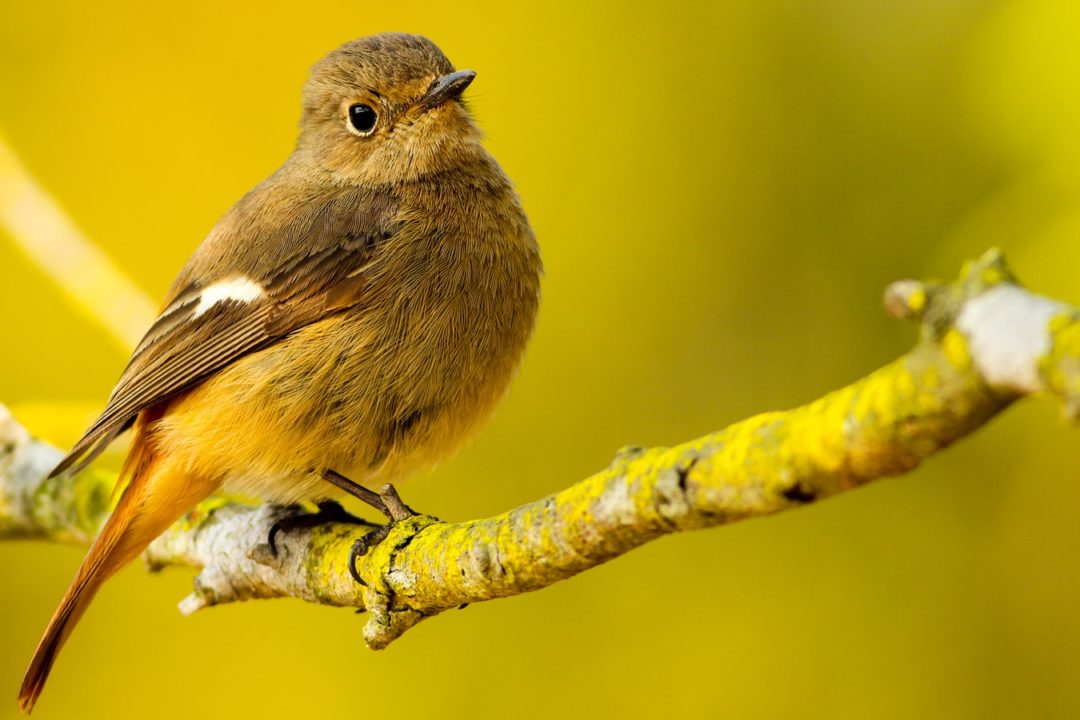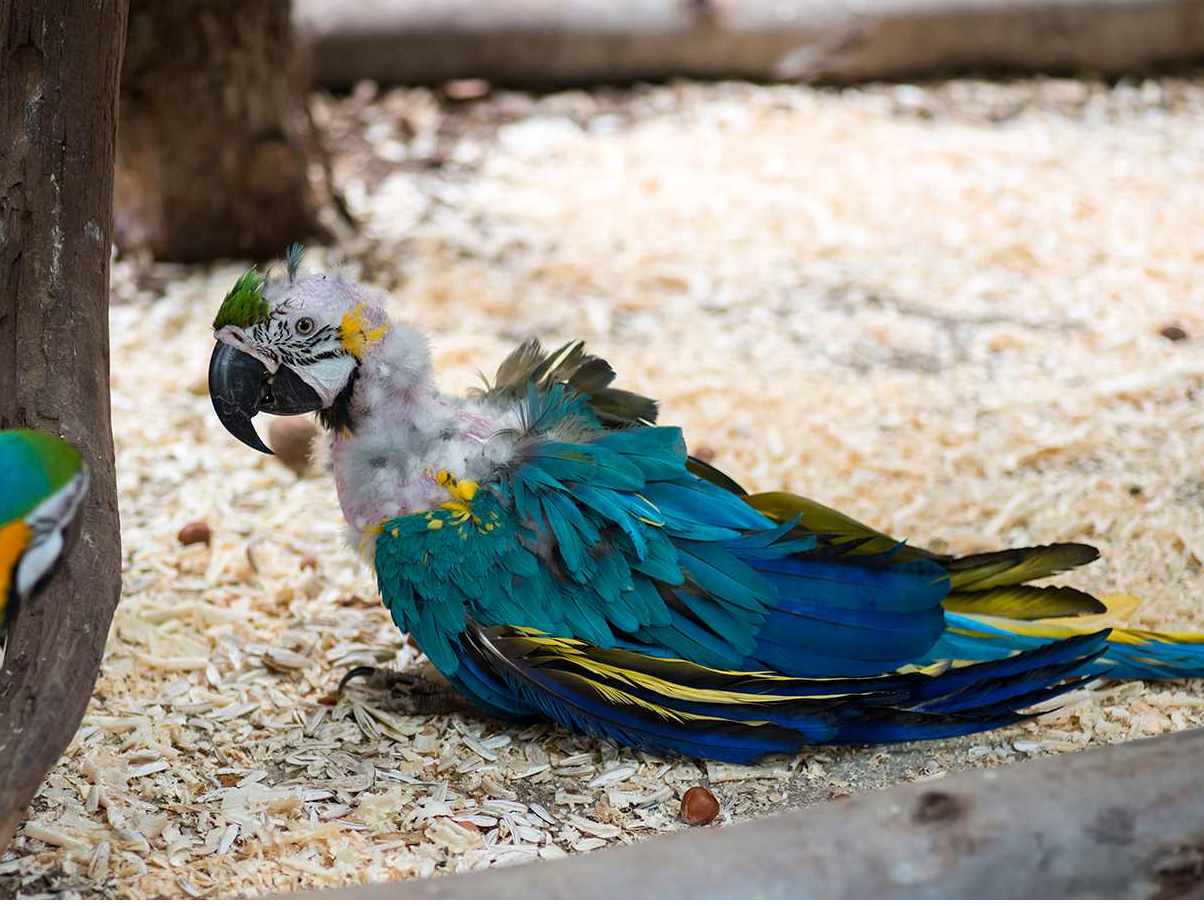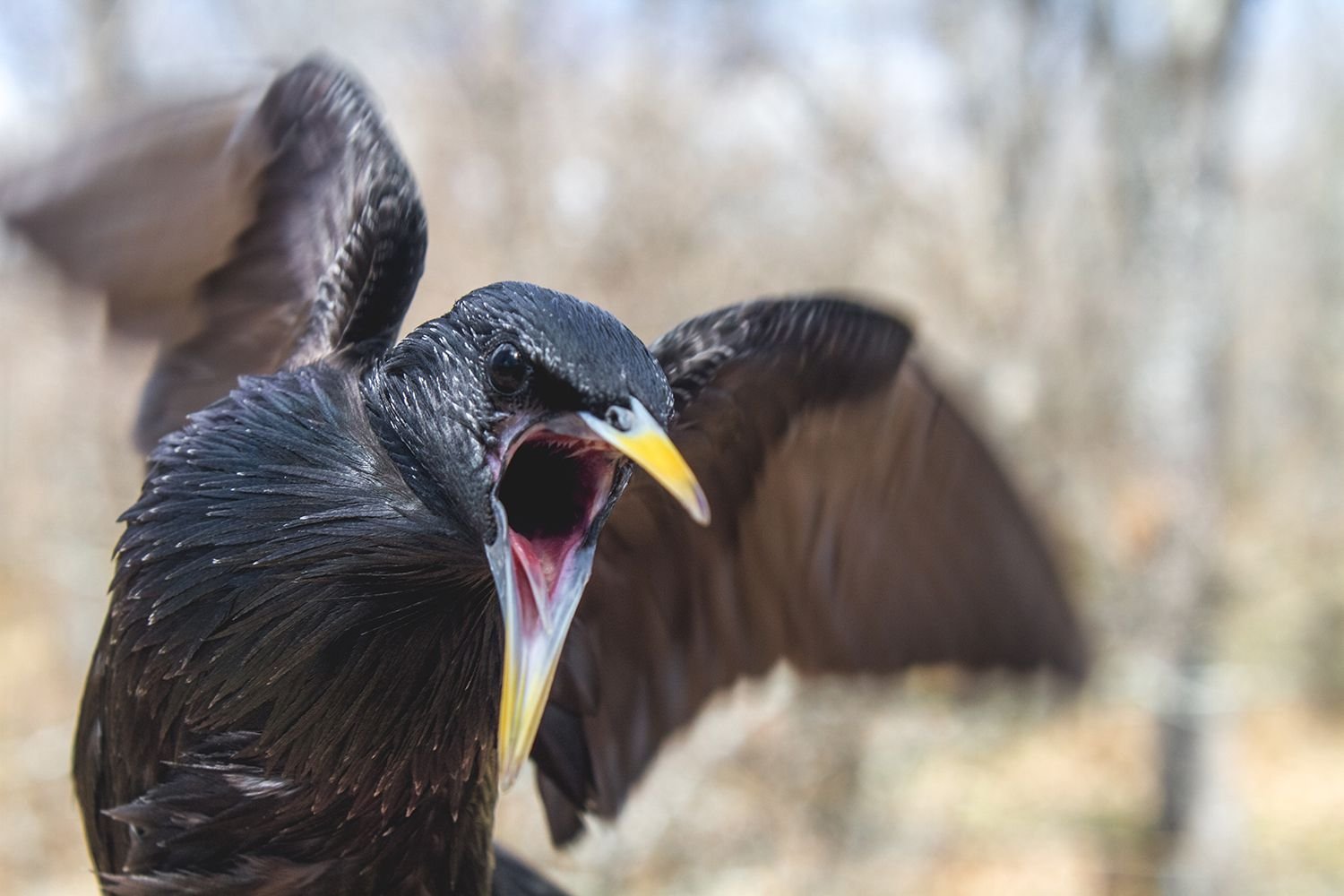Stress in pet birds can manifest through aggression, decreased appetite, fear, and decreased vocalization. Changes in the environment, lack of stimulation, improper diet, and limited social interaction can contribute to stress in these beautiful creatures, making it essential for bird owners to be aware of the signs and take proactive measures to alleviate stress in their feathered companions.
By avoiding yelling, moving slowly, providing stimulation, and allowing out of cage time, owners can help reduce stress and create a healthier and happier environment for their pet birds.
Understanding Stress In Pet Birds
Understanding stress in pet birds is crucial for their well-being. Environmental changes, lack of stimulation, improper diet, and limited social interaction can contribute to stress in these beautiful creatures. To help alleviate stress, providing a calm and enriching environment and avoiding yelling or sudden movements that may agitate them are essential.
Common Signs Of Stress In Pet Birds
When understanding stress in pet birds, it’s essential to recognize the common signs. By being aware of these signs, you can take proactive steps to help alleviate your bird’s stress and create a healthier, happier environment for them.
Here are some common signs of stress in birds:
1. Biting: While many people misinterpret birds’ biting as aggression, this behavior is often a sign of stress and fear.
2. Vocalizing: Increased or repetitive vocalization can indicate your bird is feeling stressed or anxious.
3. Decreased Vocalization: On the other hand, a sudden decrease in vocalization may indicate that your bird is experiencing stress and trying to cope.
4. Feather Picking: Birds may resort to feather picking when feeling stressed or anxious. This behavior can lead to feather loss and potential health issues.
5. Self-mutilation: Similarly, some birds may engage in self-mutilation as a response to stress, leading to injuries and further health complications.
6. Stereotypical Behaviors: Repetitive behaviors such as pacing, head-bobbing, or wing flapping are often signs of stress in pet birds.
7. Decreased Appetite: A loss of appetite can indicate that your bird is experiencing stress and is not feeling well.
8. Lack of Attention: If your bird is ordinarily friendly and suddenly displays a lack of interest in interaction, it could be a sign of stress or emotional distress.
Causes Of Stress In Pet Birds
Understanding the causes of stress in pet birds is crucial to identifying and addressing the root causes. By being aware of these potential stressors, you can minimize their impact and create a more relaxed environment for your feathered friend.
Some common causes of stress in pet birds include:
1. Lack of mental stimulation: Birds are intelligent creatures that require mental stimulation to thrive. Without adequate stimulation, they can become bored and stressed.
2. Inadequate social interaction: Birds are social animals and need regular interaction with their human caretakers or other birds. A lack of social interaction can lead to loneliness and stress.
3. Changes in environment: Birds are sensitive to changes in their surroundings. Anything from a new cage arrangement to a change in household routine can cause stress.
4. Loud or sudden noises: Loud noises can startle birds and cause them to feel anxious or stressed.
5. Lack of a safe and secure environment: Birds need a calm and secure environment to feel safe. Living in a noisy or chaotic environment can lead to chronic stress.
The Impact Of Stress On Pet Birds
Stress has a significant impact on the health and well-being of pet birds. Recognizing the effects of stress can help bird owners provide a better quality of life for their feathered companions.
Here are some ways in which stress can impact pet birds:
1. Weakened immune system: Chronic stress can suppress a bird’s immune system, making them more susceptible to infections and diseases.
2. Feather problems: Stress-related behaviors such as feather picking or self-mutilation can lead to feather loss and damage.
3. Digestive issues: Stress can disrupt a bird’s digestive system, leading to appetite loss, diarrhea, or other gastrointestinal problems.
4. Neurological problems: Prolonged stress can affect a bird’s mental well-being, leading to behavioral changes and neurological issues.
5. Poor reproductive health: Stress can negatively impact a bird’s reproductive health, leading to issues such as egg-binding or infertility.
In conclusion, understanding stress in pet birds is crucial for their overall well-being. By recognizing the common signs of stress, identifying the potential causes, and understanding their impact on birds, you can take proactive steps to create a stress-free environment and ensure a happier, healthier life for your feathered friend.

Managing Stress In Pet Birds
Managing stress for pet birds is crucial to their well-being. Environmental changes, lack of stimulation, improper diet, and limited social interaction can contribute to stress in these beautiful creatures. Understanding the signs of stress and providing the proper care and attention can help alleviate their anxiety and promote a healthier, happier life.
Recognizing And Addressing Stress In Pet Birds
Pet birds can experience stress just like any other living creature. Bird owners need to recognize and address stress in their feathered friends. One common sign of stress is biting, often misunderstood as aggression. However, it is usually a response to fear or stress. Additionally, birds may exhibit decreased vocalization, feather picking, self-mutilation, stereotypical behaviors, and decreased appetite when stressed. If you notice any of these signs in your pet bird, it is crucial to take action to help them alleviate their stress.
Creating A Stress-free Environment For Pet Birds
To help your pet bird manage stress, creating a stress-free environment is of utmost importance. One way to achieve this is by avoiding yelling or making loud noises around your bird, which can further aggravate and stress them. Moving around slowly and calmly can also help to minimize their anxiety. Additionally, providing your bird with out-of-cage time and stimulation is crucial for their mental well-being. This can include playing with toys, socializing with other birds or humans, and giving them opportunities to explore their surroundings. Creating a calm and enriching environment can help your pet bird feel safe and secure.
Providing Mental Stimulation And Enrichment For Pet Birds
Mental stimulation and enrichment are vital for managing stress in pet birds. Birds are brilliant creatures that require mental stimulation to keep their minds active and engaged. This can be achieved by providing them with various toys, puzzles, and activities that encourage problem-solving and exploration. Different textures, colors, and shapes can help keep your pet bird mentally stimulated and prevent boredom. Regularly rotating and introducing new toys can also help maintain their interest. Remember, a mentally stimulated bird is a happy and stress-free bird.
Preventing Stress In Pet Birds
Stress can have a detrimental effect on the health and well-being of pet birds. As responsible bird owners, it’s essential to take proactive steps to prevent stress and ensure a happy, contented, feathered friend. By focusing on proper nutrition and diet, socialization and interaction, and regular vet check-ups, you can create a stress-free environment for your pet bird.
Proper Nutrition And Diet For Pet Birds
Just like humans, birds require a balanced and nutritious diet to thrive. Providing your pet bird with a high-quality and varied diet supports their physical health and plays a significant role in preventing stress.
To ensure your bird’s nutritional needs are met, consider the following:
- Offer a mix of fresh fruits, vegetables, and leafy greens.
- Include a variety of grains, seeds, and legumes in their diet.
- Provide access to clean, fresh water at all times.
- Avoid feeding your bird processed and sugary foods.
A well-balanced diet promotes a healthy immune system, enhances digestion, and helps reduce the risk of nutritional deficiencies that can contribute to stress and anxiety in pet birds. Remember, consult your avian veterinarian for specific dietary recommendations based on your bird’s species and needs.
Socialization And Interaction For Pet Birds
Like humans, birds are social creatures and thrive on companionship and interaction. Lack of socialization and mental stimulation can lead to boredom and stress in pet birds. It’s essential to provide opportunities for socialization and engage your feathered friend in stimulating activities.
To promote socialization and interaction for your pet bird:
- Set aside daily interactive playtime with your bird.
- Provide toys and puzzles that encourage mental stimulation.
- Create a safe, enriching environment with perches, swings, and climbing structures.
- Consider introducing another compatible bird as a companion if appropriate for your bird’s species.
By incorporating socialization and interaction into your bird’s daily routine, you can help prevent loneliness, boredom, and the associated stress that may arise from these conditions.
The Importance Of Regular Vet Check-ups For Pet Birds
Regular visits to the avian veterinarian are crucial for your pet bird’s overall health and well-being. Annual check-ups allow for early detection of potential health issues and help prevent stress-related ailments.
When scheduling vet check-ups for your pet bird, keep the following in mind:
- Choose a veterinarian experienced in avian care.
- Ensure routine health exams, including beak and nail trims.
- Discuss any concerning behavioral changes or signs of stress you’ve noticed.
- Follow the veterinarian’s recommendations for preventive care, vaccinations, and parasite control.
Regular vet check-ups minimize the likelihood of underlying health conditions going unnoticed and provide an opportunity to address any potential stressors in your bird’s environment. Your avian veterinarian can provide personalized advice and guidance to keep your pet bird healthy, happy, and stress-free.
:strip_icc()/stressbird-5c0db40ac9e77c000179bf48.jpg)

Frequently Asked Questions On Stress In Pet Birds
How Can You Tell If A Bird Is Stressed?
Birds exhibit several common signs of stress: biting, increased vocalization or lack thereof, feather picking, self-mutilation, stereotypical behaviors, decreased appetite, and lack of attention. To help a stressed bird, avoid yelling, move slowly, train them for stimulation, and provide out-of-cage time.
How Do You Help Birds With Stress?
To help birds with stress, follow these tips: 1. Avoid yelling at them. 2. Move slowly around them to avoid agitating them further. 3. Provide stimulation and out-of-cage time. 4. Stick and train your bird. Remember, birds can experience stress just like humans, so creating a calm and enriching environment is important.
Does My Bird Have Anxiety?
If your bird displays signs like biting, vocalizing less, feather picking, self-mutilation, aggression, decreased appetite, and lack of attention, it may be experiencing anxiety or stress. To help your bird, avoid yelling and make slow movements. Stick-train your bird, provide stimulation, and allow out-of-cage time.
Do Birds Get Stressed In Cages?
Birds can experience stress in cages, leading to reduced immune function and increased fear. Signs of stress in birds include biting, decreased vocalization, feather picking, self-mutilation, and decreased appetite. To help reduce stress, avoid yelling at the bird, move slowly around it, provide stimulation, and allow for out-of-cage time.
Conclusion
Pet birds, just like humans, can experience stress in their lives. Factors such as environmental changes, lack of stimulation, improper diet, and limited social interaction can contribute to stress in these beautiful creatures. Bird owners need to be aware of the signs of stress in their pets and take the necessary steps to alleviate it.
By providing a calm and stimulating environment, along with a proper diet and regular social interaction, owners can help their birds lead happier and stress-free lives. Remember, a happy bird is a healthy bird.

